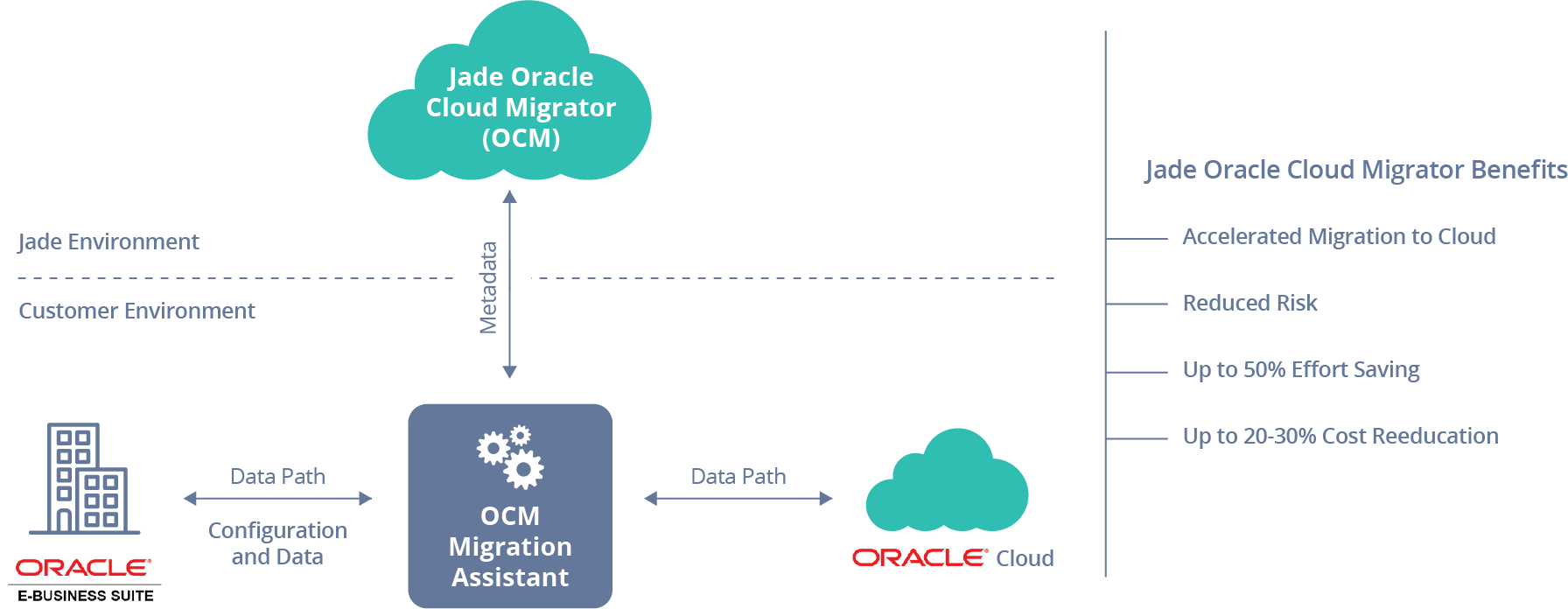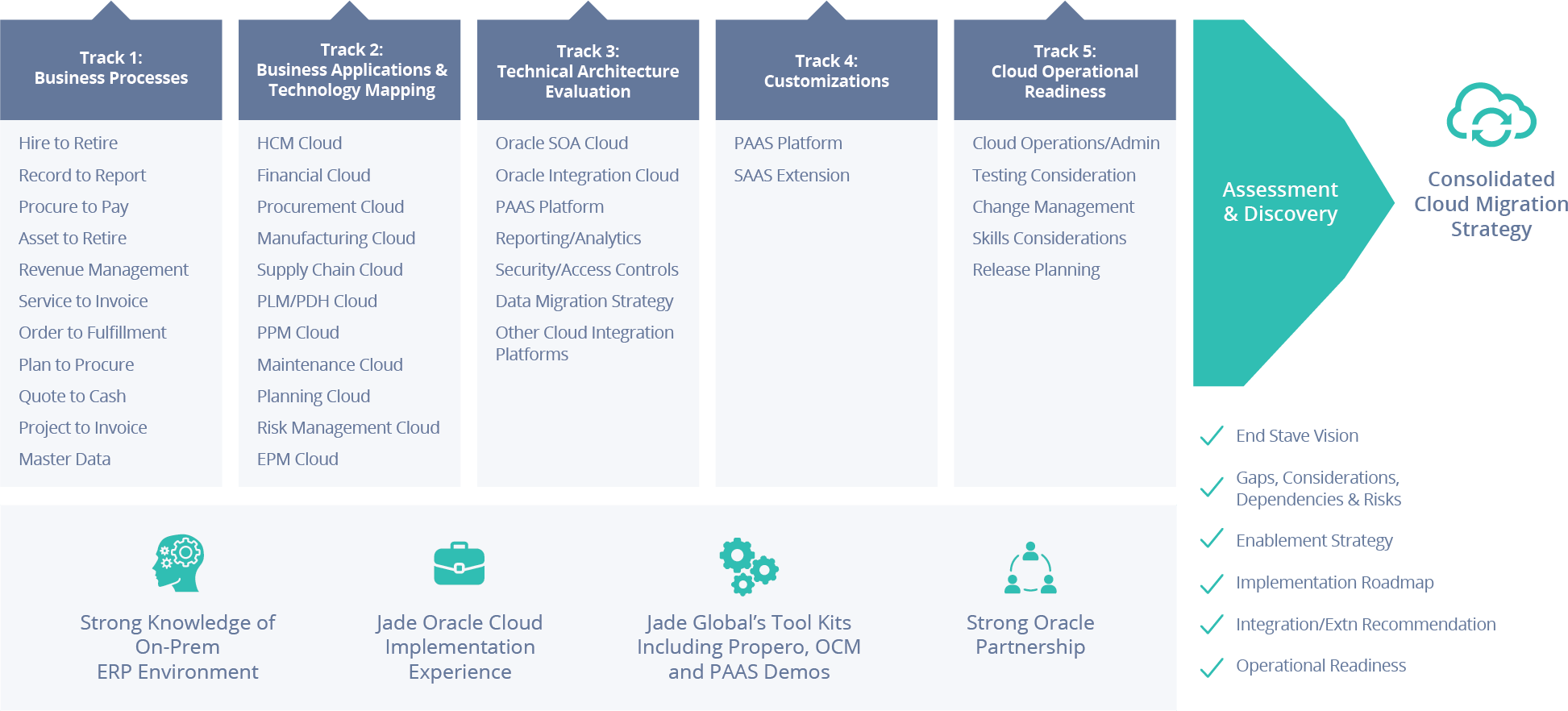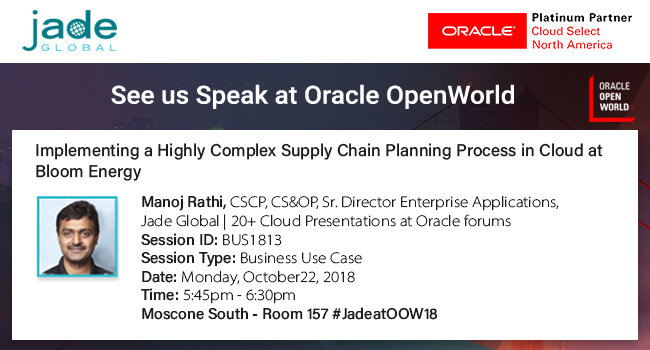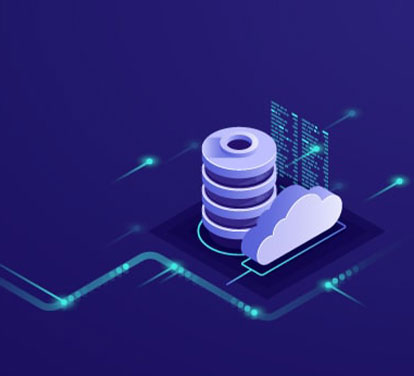Considering the transformational power of the Oracle Cloud, it makes sense to get your bearings, to understand where you are, and where you want to go in your journey.
First, let’s look the top 7 reasons to move to Cloud and then we’ll look at the factors to consider in creating a roadmap to Cloud fulfillment:
- Easy launch.
You can be up and running with the applications you need very quickly and less expensively than with traditional Oracle on-premise applications. The cost of implementation can be as little as one-tenth the cost of implementing a full-blown Enterprise Resource Planning (ERP) system. Time saving equals money saving; you will save time setting up your business applications in the Cloud!
- Flexibility for growth.
Will your applications and IT infrastructure keep up with your planned growth? With a Cloud-based system, you can accommodate any rate of growth. Your capacity can be expanded more easily and cheaply through Oracle’s data center. You do not have to add hardware and personnel to manage the upgrade and expansion process.
- Lower Cost of Ownership.
There is less infrastructure support you need to provide. Your teams can be repurposed for other business-critical needs. The Cloud also allows you to shift expenses from capital to operating expenses.
- Collaboration.
Cloud-based applications, such as Cloud Financials, Cloud Supply Chain Management, and Cloud Procurement, provide seamless connectivity and collaboration opportunities. Employees can work simultaneously in the same workspace or document. Growth in collaborative applications and Cloud-enabled collaboration has been expanding. There is a human factor in the degree and quality of collaboration, but Cloud applications give you the tools. The rest is up to the people using the tools and the culture of the company.
- Expectations.
The newest generation of users- and all users for that matter - want a smoother user interface and out-of-the-box functionality that facilitates a process. Cloud applications have the latest user interfaces that make the applications more user–friendly. Ease of use and learning how to use applications accelerates adoption. This leads to greater efficiency and greater trust in the data.
- Standard practices.
Cloud applications are based on standard industry-tested practices. You may have to give up some portion of your preferred process. In exchange, you get tried-and-true processes that model the practices of industry leaders. You should strive to use much of the out-of-box functionality as possible. Oracle, as an example, has built processes for Oracle Cloud applications based on customer feedback and the best learnings of processes from various Oracle product families like Peoplesoft, JDE, eBusiness Suite and others. From this input, Oracle has created Cloud-exclusive processes that model best practices and preserve upstream and downstream data validity.
- Automatic Updates.
Once you upgrade to the Oracle Cloud, you are on a subscription that entitles you to steady stream of new features and functionality to run your business.
Now let’s take a closer look some considerations for your move to the Oracle Cloud.
A properly executed Cloud upgrade project will take all of the these factors into account when planning for the upgrade and in executing the upgrade: Data.
The time when you are considering a move to the Cloud is also the time you should be looking to clean your data. This is an area that often causes concern and delays in a project. You should do careful planning as to what data you need to move, how you will move it and when you will move it. You should also add time to validate the converted data. Automated tools like the Jade Global OCM* will make the job easier.

Oracle Cloud Migration Solution - OCM *Jade Global Oracle Cloud Migrator (OCM)is used to accelerate the migration from Oracle eBusiness Suite to Oracle Cloud
Software/ Hardware.
What is the status of your software license renewals? Will your costs be increasing? Are you getting the functionality you need? What is the renewal date for any hardware agreements?
Integrations.
Are there many integrations that have reached end-of-life? Can Cloud applications reduce required integrations or replace custom integrations with standardized integrations?
Security.
What security and separation-of-duties concerns do you have and how will they be answered by the Cloud solution.
Migration Sequence.
What modules fit best in your business? What sequence makes sense for the least disruption? You need to make decision on front-office and back-office applications and impact on the business.
User Change Management.
Don’t forget the human element to an Oracle Cloud upgrade Strong user adoption is one of the largest factors in being able to enjoy the distinct advantages of an upgrade to the Cloud.
New Infrastructure Support Model.
Infrastructure support will depend on if you are going “all Cloud” or hybrid Cloud. Most companies use a hybrid approach that allows them to take advantage of the Cloud where it makes the most sense. You will have to understand knew skills requirements and how the upgrade will affect your staffing.
Business Cycles.
Are their and key period-end or fiscal year-end activities? Are there seasonal considerations? Most companies will not want to upgrade during their busy season or just before their busiest time of year.
New features and functionality.
You may be able to replace old software, integrations or even manual processes with updated software. The Oracle Cloud is built from the ground up. Oracle has modeled leading industry practices and is constantly adding to and improving its applications.
Assessment.
Jade Global has developed a cloud upgrade methodology to provide consistent results, scalable processes documents, and a proven roadmap for cloud success. Jade’s Cloud Implementation Methodology (JCIM) helps maximize the benefits of the cloud upgrade while helping you understand and mitigate the risks. The Jade Global Cloud 360 Assessment answers these questions and more. Our Cloud 360 Assessment provides the roadmap services, technical architecture, and everything you need to build connected apps, Cloud infrastructure, compliance, and security in the Cloud. As part of the assessment, Jade experts produce a detailed report indicating your organization’s core business requirements and how a cloud path will meet your requirements. The implementation path gets broken down into multiple phases to ensure quicker ROIs and avoid disruptive “big bang” approaches whenever possible.
Key Phases and Activities of the Jade Cloud 360 Offering: Cloud 360 Assessment Envision
Cloud 360 Assessment Envision
- Clearly articulate the strategy along with the vision aligned with business objectives
- Develop a clear end-state view of business applications
- Change management planning
Evaluate
- Understand the current footprint and business pain points
- Align the right applications from wide list of Oracle solutions
- Examine end to end processes
- Evaluate compliance, international and security considerations
- Gather insights to drive efficient decision making
- Understand the priorities both short term and long term
- Assess risk
- Identify technology considerations
Validate
- Gather inputs and refine the findings
- Build prototypes and demos
- Understand change management considerations
- Develop solution and roadmap options for the customer to evaluate
Plan
- Finalize the implementation roadmap
- Develop a business case - implementation plan, budget and ROI mapping for stakeholders
- Transition to implementation phase
Map your Cloud Journey with Jade Global at Oracle OpenWorld
Jade Global’s team of Oracle Certified experts will be available to answer questions in person if you are attending Oracle OpenWorld from Sept 22-25, 2018 in San Francisco, California.
Manoj Rathi (Sr. Director, Enterprise Applications) and Sunny Todkari (ERP Solution Architect) will be presenting special customer success-themed breakout sessions during the conference. Attendees meet our experts at Booth #3205 for a chat and to catch out live product demos on industry-specific solutions, integration tools, and accelerators for Oracle Cloud Applications. Various members from Jade Global’s ERP and Analytics teams will join them in hosting over 10 experiential and interactive live booth demos. With demo topics ranging from Supply Chain Management, Integrations, Procurement, Cloud 360 assessment, Xenon Test Automation Cloud for Oracle ERP, there will be something for everyone who stops at our booth.
 About Jade Global’s Oracle Practice
About Jade Global’s Oracle Practice
Jade Global is a Cloud-focused integration, consulting & IT outsourcing Oracle Platinum and Cloud Select Partner. Our services include implementations, upgrades and custom development with cutting edge solutions for SCM, WMS, PM, and HCM. Our industry-focused ERP and BI software solutions improve visibility across entire enterprises. Jade’s specialized Cloud Accelerator Solutions including our flagship Oracle Cloud Migrator (OCM), Informatica to ODI Conversion Tool (InfatoODI), B2B, Warehouse Management, E&O, Supply Chain planning, Reverse Logistics Automation and Integrated Product Life Cycle Management provide much needed innovations to drive customer success. With more than 250+ cloud certified professionals, Jade delivers services across diverse industries including Hi-Tech, Manufacturing, Distribution & Hospitality.
Jade is a member of the Oracle Cloud Excellence Implementor (CEI) Program and has been recognized as one of the fastest-growing companies in North America by Inc. 5000.
Questions? Comments? Email: info@jadeglobal.com or give us a call at 877-523-3448
Written by: Manoj Rathi, Sr. Director, ERP, Jade Global
Everyone knows about the incredible transformation the Oracle Cloud can bring to a business. The Oracle Cloud is changing everything about the way we manage our IT infrastructure and even how businesses run, and people work. There is no doubt that a properly executed Cloud strategy can also transform a business by changing how we communicate, share information, and increase the speed of work. The Oracle Cloud represents an incredible opportunity.
Moving to the Cloud can bring these advantages and more to the companies who make the move. That doesn’t mean there is a one-size-fits-all approach that will work for everyone.
Subscribe to our email Newsletter
Popular Posts












